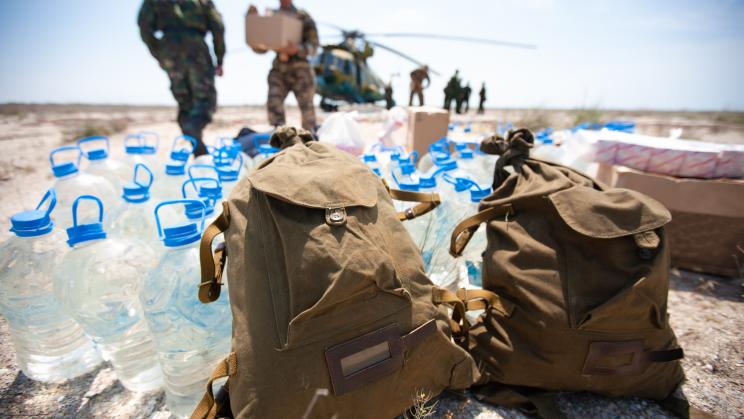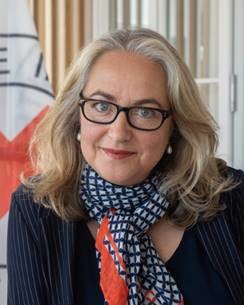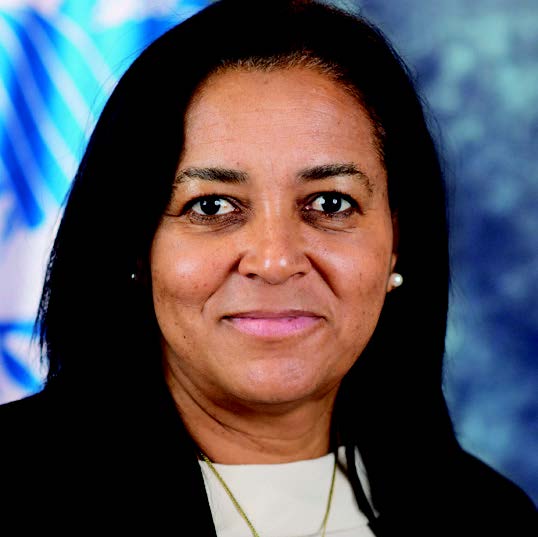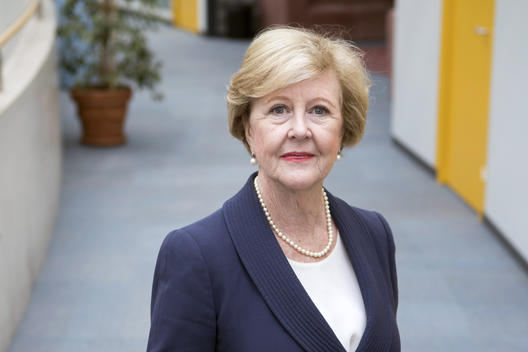
18 November 16:45–18:00 CET
This panel will be live streamed to SIPRI’s YouTube channel.
Multilateralism is crucial for effective and inclusive solutions to global challenges. It is critical for generating the ability and preparedness to respond to global health emergencies; for addressing root causes of conflict and forced displacement; and for dealing with the growing needs of people affected by conflict and violence, including refugees and forcibly displaced people.
This session will explore how cooperation between governments is vital to address those most in need. It will show how recent dynamics in the multilateral system have catalysed or challenged initiatives to improve the lives of people in the most vulnerable situations.
The panel will address the following questions:
- How do international humanitarian organisations assess humanitarian needs today in view of the pandemic, and its effect on people, such as those affected by conflict and violence, including refugees and forcibly displaced people?
- What trends have international humanitarian organisations seen in the interaction between governments, and what are the implications for global health, for refugees and forcibly displaced people, and for people affected by conflict and violence?
- Have these organisations had to shift priorities or working modalities in response to these trends in inter-government cooperation and, if so, how?
- How do international humanitarian organisations foresee the future for their organizations and for their work with respect to multilateral cooperation? Any proactive adjustments from their side?
- What is needed to turn negative developments around—who needs to step up?
Moderator
|
|
Dr Jannie Lilja Dr Jannie Lilja is Director of Studies, Peace and Development, at SIPRI. Until recently she served as a senior fragility specialist with the World Bank’s Fragility Conflict Violence Group. Prior to joining the World Bank she was a Swedish diplomat and researcher with the Department of Peace and Conflict Research at Uppsala University. |
Discussants
|
|
Dr Helen Durham Dr Helen Durham is Director of International Law and Policy at the International Committee of the Red Cross (ICRC) headquarters in Geneva. In her role she oversees a large global network of international lawyers, policy advisers, armed forces and police delegates, weapons specialists, sociologists, researchers and academic experts who work towards the respect of international humanitarian law (IHL). |
|
|
Valerie Newsom Guarnieri Valerie Newsom Guarnieri has been WFP Assistant Executive Director since January 2018. In this role, she leads cutting-edge program and policy development towards ending hunger, spear heading WFP efforts to ensure protection and inclusion, expand school meals and nutrition programs, empower women, build resilient food systems and support cash transfers and social protection. Previously, she also provided oversight for emergency and supply chain functions, ensuring delivery of essential food assistance to the most vulnerable, food insecure people around the world.
|
|
|
Dr Gillian Triggs Gillian Triggs is UNHCR’s Assistant High Commissioner for Protection. She was appointed on 9 August 2019. Triggs is a highly renowned expert in international law who has held a number of eminent appointments in service to human rights and the refugee cause, including most recently as the President of the Australian Human Rights Commission and the Vice-Chancellor’s Fellow and Emeritus Professor at the University of Melbourne. |
For additional information on this panel, please contact the SSC 2020 Team at sthlmseccon@sipri.org.



